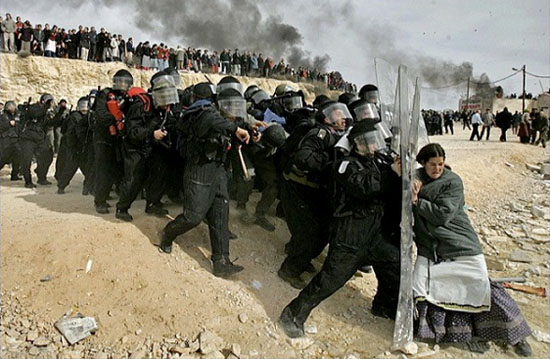
With the most recent amendments to the Law on police, police officers were granted the right to independently opt to refuse an assignment, if all conditions necessary to carry it out are not met, or if they feel their life is threatened. The announcements and realization of police strikes during the previous few years are the proof that police officers are not satisfied with their position. A high-risk event such as Pride Parade directly threatens the life of a police officer. Thus the conditions for refusing any related assignment are fulfilled. The legal provision in question is a direct violation of the idea and mission of police service, but also in contradiction with the vision of the development of MUP (Ministry of Internal Affairs), which should operate as the service of all citizens that guarantees their safety.
During the previous four years, the final outcome of the Pride Parade is always discussed at the beginning of October. For some, that event is a security issue, for other a moral threat, while some believe it to be a fundamental human right. The police is always at the epicenter of this discussion. It is in charge of the realization of the largest number of security demands related to the Pride Parade. Police officers have the legal obligation to protect lives, rights, freedoms and personal integrity of individuals. It is also their task to support the rule of law. And that is precisely what Pride Parade is about.
For its engagement in the protection of the right to gather in 2010, the police was commended by the European Union. The following year two out of fourteen police syndicates (one of them is the official Police syndicate of Serbia) demanded a ban of the Pride Parade, as allegedly unnecessary and endangering public peace and order. With such an attitude, the protection of human rights became unimportant, and the security of police officers the most important, because, as one of the police syndicates pointed out: “some politicians are incapable of saying no”. Less than a month after the Pride Parade was not held, the police officers were granted the legal right to refuse to accept an assignment.
On October 26, 2011, the Serbian government proposed amendments to the Law on police to the National Assembly to be accepted following the urgent procedure, with the following argumentation: “Due to the current security situation and inadequate working conditions for police officers in Serbia”. The same arguments related to security assessment were offered last year, when all gatherings at the time Pride Parade was scheduled were banned. The public debate on the amendments to the law was circumvented, as in the opinion of the government, the adopting of the amendments to this law within the standard procedure involving a public debate would “have detrimental consequences on the security of the country and the operation of state bodies and organization”. However, this is not the only issue which is raising concern.
There is one fact that additionally complicates the situation, not only with regard to the Pride Parade, but with regard to the work of police force in Serbia in general. The Pride Parade is only an evidence of the readiness of police force to react when the most sensitive societal issues are in question. In case an employee of the Ministry of Internal Affairs refuses an assignment, which is his or her legal right in accordance with the new amendments to the Law on Police (Article 138a, paragraph 10) due to clear and present danger to his or her life or health or due to inadequate working conditions, he or she has the right to remuneration which amounts to his or her basic salary. According to the director of police, inadequate conditions for work of police officers are (1) unsolved issue of housing, (2) inadequate salary and (3) lack of necessary technical work tools. There are three consequences of such a provision.
Firstly – a police officer can refuse an assignment. In the case of Pride Parade or any other high-risk event, this means failure to react to a security threat. Furthermore, he or she still has the right to remuneration, regardless of the fact that the assignment was not completed. Consequences are not dire if we are talking about an individual, but in the case an entire unit chose to do so, it is hard to discern whether such behavior might constitute mutiny.
Secondly – the state must ensure the work conditions for police officers. This is why Article 138a of the Law on Police looks like a justification for the inability of the state to ensure normal working conditions for police officers. Such a provision has detrimental consequences to the safety and security of the country.
The third illogicality is that the majority of the current budget (more than 80%) is spent on salaries, and with the new additions the percentage will be even higher. In this situation, only a small amount of funds will remain to improve the conditions for everyday work of police officers, this increasing the possibility that police officers will chose not to carry out certain assignments.
The responsibility of every state is to ensure security and the protection of human rights of its citizens. In Serbia, preference is given to the security of the state. Currently there are no funds available for human rights. Police officers should always be “proud”, because the issue is not only the Pride Parade, but the idea of the necessity to protect human rights. And the state is the one that needs to provide the necessary conditions for the operation of its organizational parts; this should be based on a previous analysis of what is truly necessary for this operation.
The author is a researcher of the Belgrade center for security policy (BCSP).
Translated by Bojana Obradovic
Peščanik.net, 05.10.2012.


